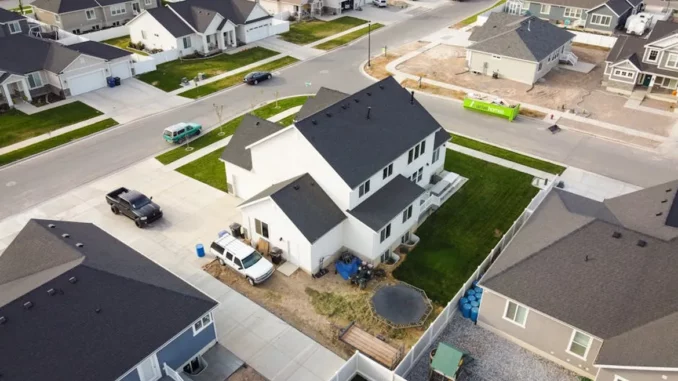
The town of St Helens, situated in the North West of England, is poised for a transformative chapter with the introduction of 295 new homes on a historically industrial brownfield site. This ambitious project is a collaborative effort between Watkin Jones plc and Torus, and represents a critical stride in addressing the region’s pressing housing shortage. Furthermore, it breathes new life into a site once dominated by industrial activity. This development is a cornerstone of the larger Moss Nook master plan, a visionary project led by Harworth Group aimed at revitalising an area long overdue for attention.
Focus360 Energy: property compliance services – pre-planning to post-construction. Learn more.
Brownfield sites, characterised by their previous industrial purposes, present both unique challenges and opportunities for urban development. These areas often suffer from underutilisation due to potential contamination and outdated infrastructure. Yet, they hold immense potential for new development, particularly in urban locales where available land is at a premium. The regeneration of such sites is vital for sustainable urban development. It curbs the necessity for new land, mitigates urban sprawl, and injects vitality into existing communities. The St Helens initiative exemplifies how these sites can be reimagined into thriving residential communities. Supported by Homes England, the project is set to deliver a diverse array of affordable housing options, including social rentals, shared ownership, and rent-to-buy schemes. This ensures that the housing needs of a broad demographic are catered for, from young families starting out to older individuals seeking cost-effective living solutions.
In this endeavour, Watkin Jones and Torus play pivotal roles. Watkin Jones, a prominent UK developer renowned for its expertise in student accommodation and the build-to-rent sectors, brings its wealth of experience to the table. Their capital-light business model and robust connections with institutional investors lay a strong foundation for the success of the St Helens project. Complementing Watkin Jones’ expertise is Torus, the North West’s largest provider of affordable housing, which will oversee the development upon its completion. This partnership guarantees that the homes will be maintained to exemplary standards, and that residents will have access to essential support services. Torus’s involvement underscores the project’s commitment to delivering truly affordable housing solutions.
The Moss Nook development is conceived with a strong focus on sustainability. Watkin Jones is committed to creating a fossil-fuel-free environment, employing fully electric heating systems. This aligns with their environmental, social, and governance (ESG) objectives, setting a precedent for future developments. The incorporation of green spaces and landscaping enhances the area’s aesthetic appeal, providing residents with a pleasant living environment while promoting local biodiversity. Socially, the project is anticipated to significantly benefit the local community by addressing urgent housing needs and generating job opportunities during the construction phase. Its strategic location, within walking distance of St Helens’ town centre and a railway station, ensures residents enjoy easy access to essential services and transport links to major urban centres like Liverpool and Manchester.
Despite the numerous benefits, the development is not without its challenges, typical of brownfield projects, such as land decontamination and the need for infrastructure upgrades. However, with the backing of Homes England and the expertise of Watkin Jones and Torus, these challenges are being addressed with foresight and diligence. Looking to the future, the successful completion of the St Helens project could serve as a blueprint for similar developments across the UK. As government policy increasingly favours brownfield development, projects like this demonstrate the potential for transforming neglected sites into vibrant communities that meet the diverse housing needs of the population.
The 295-home development in St Helens stands as a testament to the efficacy of collaboration and innovation in urban development. By converting a former industrial site into a lively residential community, the project not only tackles housing shortages but also contributes to the sustainable evolution of the region. As the UK continues to navigate its housing challenges, initiatives such as this provide a beacon of hope and a viable path forward for crafting inclusive and sustainable urban environments.


Be the first to comment